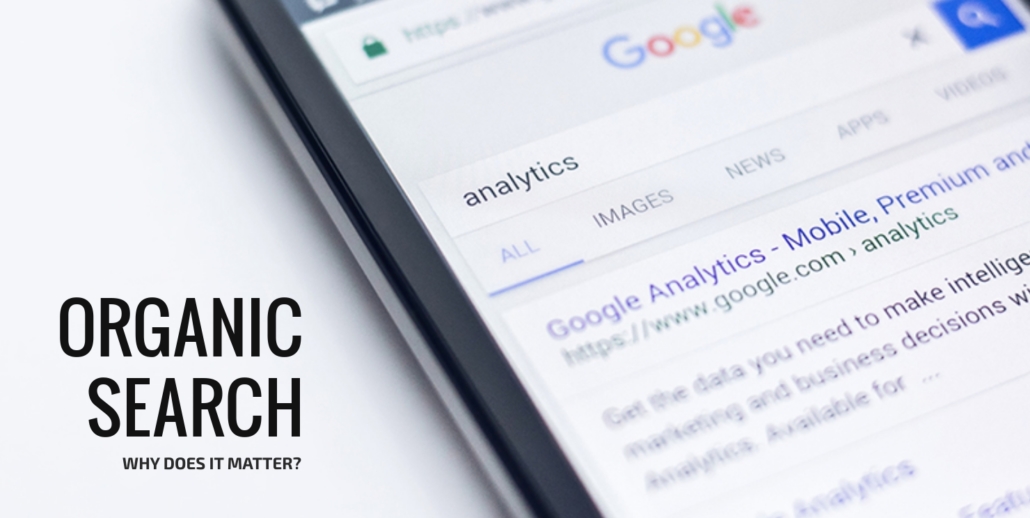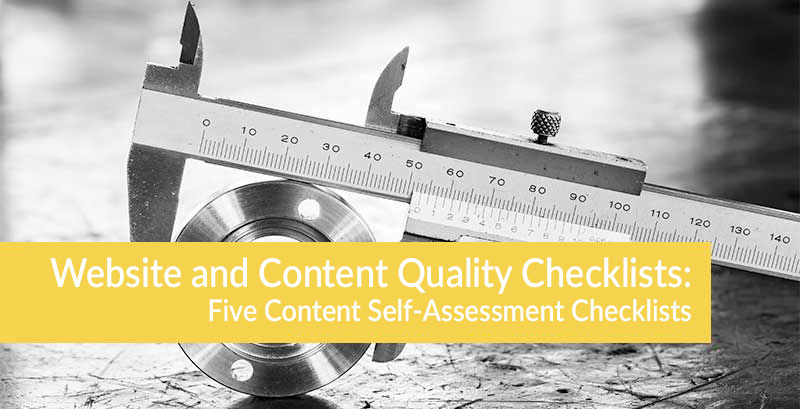One of the most common questions we’re asked by clients is “Why can’t I just pay for my website and social traffic?” and “Does SEO really matter that much?”
We get it – you want to drive traffic to your website and social accounts, and you want it to happen immediately. This is what paid traffic promises to do for you – clicks, clicks, and more clicks.
The lingering problem with these all these clicks and sudden boom in traffic is quality. Who is clicking these links? Are these clicks converting to new customers or regular website readers and social followers? What is motivating people to click your paid advertisements? And what about the people who see your advertisements but don’t click the link?
Organic search and SEO work because when done right, you’re giving your readers exactly what they want. The website and social content that answers their questions, gets them engaged with your brand, and keeps them coming back. An advertisement simply cannot do this.
What is Organic Search?
Organic search is the natural searching your readers do in search engines. Your readers enter one or more search words in Google, or another search engine and a list of search engine results are returned.
The search engine results page (SERP) displays a mix of organic and paid search results. Your goal is to rank at the top or close to the top of the SERP.
Organic Search vs. Paid Search
Talk to any honest SEO professional and they’ll tell you that organic search does work but that it takes time. Immediate results do not happen with organic search.
In the frantic pace of the Internet and the constant fear of missing out, most people shudder when they hear “it takes time”. You want website and social traffic and you want it now – there is no time to waste.
The debate about which is better organic or paid search really comes down to five key measurements:
- ROI
As BrightEdge highlights, there are 3.5 billion searches a day and ranking high in the SERP has tremendous power to drive traffic to your website. As part of their research, BrightEdge tracks what people are clicking, revealing that while 50.1% of clicks are from SEO traffic, 48% of all queries display paid advertisements at the top of the organic search results.
These numbers tell us that “brands that neglect to integrate organic and paid search strategies will lose out on tremendous potential for attracting the attention of prospects.”
To maximize the value of your pay-per-click (PPC) campaign you need to spend a lot of time learning how to lower your cost-per-click (CPC). And then you need to spend more time and money analyzing the effectiveness of your advertisements, testing updated advertisements, and then retargeting your advertisements to the right audience.
The ROI on organic search is much more straight-forward. The ROI comes down to content quality, how well you know your users, and the overall strength of your content marketing strategy. According to PoofNewSales organic search traffic has 62% more conversions for a third of the cost of paid search. And here at Know Agency we see that our clients are experiencing similar results.
- Long-Term Results
You want long-term results – consistent rankings in the SERP, people who keep coming back to your website and social accounts, and content that keeps working for you long after you’ve written and shared it.
This is what organic search does for you. Strategic organic search pays off in the long-term with evergreen content that continues to be displayed in SERP and because you’ve built a level of trust with your users, they know they’ll get reliable, quality, and valuable information when they click your URL. Organic search works because you’re actively involved in your content and your users – regularly updating content to keep it resonating and ranking.
Think about how advertising works – once you stop seeing an advertisement, you forget about the product or company. The space occupied by the company’s advertisement is taken over by another company or brand. Gone and forgotten. The money spent on the PPC stops converting to clicks and traffic.
- Brand Building
Your brand matters in the crowded and noisy Internet. Think about the links you click in the SERP. You click the links that you recognize and trust. This is why all too often, that first link in the SERP is ignored.
Your brand matters in the crowded and noisy Internet. Think about the links you click in the SERP. You click the links that you recognize and trust. This is why all too often, that first link in the SERP is ignored.
The best way to build your brand and to develop trust with your readers is with organic content. Spend the time getting to know your users, what they want, what their challenges are and then provide them with the content that ticks these boxes. You need to do this on your website, your social media accounts, and your email newsletter.
- Community Growth
Community is not just an online buzzword – it’s a game-changer. The stronger your community, the better your website and social traffic. This translates to expertise, authority, and trust (EAT) – a key metric used by Google Search Quality Raters to evaluate the quality of your content and ultimately your SERP ranking.
You need people who subscribe to your blog and email newsletters, follow you on social media, and then share your content with their colleagues and social network. This happens when you provide content that resonates – and this is what organic search does.
Even better, you can leverage your community and brand awareness to create user-generated content (UGC) such as testimonials and reviews that you can then use to help establish more trust and awareness.
An advertisement cannot build a community. Sure, a funny or not-so-funny advertisement might be a brief Internet sensation – but this is very short-lived. Advertisements do not lead to testimonials or reviews – the link might get clicked but often people become frustrated when they realize they’ve been sucked in by an advertisement and start asking “Why am I seeing so many advertisements in my Facebook/Twitter/Instagram feed?”, ultimately establishing a negative association with the brand.
- Lead Quality
You want and need quality leads and you get this by providing quality content. And yes, it is possible to write quality advertisements that get people to click. However, the differentiator is how people are exposed to the advertisement or content.
You want and need quality leads and you get this by providing quality content. And yes, it is possible to write quality advertisements that get people to click. However, the differentiator is how people are exposed to the advertisement or content.
With organic search, you know what users are looking for and understand user intent. This allows you to create content that consistently displays in SERP and social feeds, helping to build awareness with people who are further along in the sales cycle. When they click, they are often much closer to making a buying decision.
And here’s the secret that other digital marketing companies aren’t telling you: the backbone of both organic search and paid search is SEO.
Yes, that’s right, you still need to do your SEO research, learn about keywords, user intent, and organic search volume to get your PPC campaign started.
And now, remember this: once you stop paying for PPC advertisements, the traffic stops, and you’re not displayed in the SERP.
What Do You Click and Why?
Think about how you search and what compels you to click a link. Do you immediately click the first link you see, or do you read the titles and meta descriptions looking for URLs that you recognize?
What makes you trust a link? What happens when you click a link and it doesn’t give you what it told you it would? Will you click that link again?
Here’s the thing, at Know Agency we specialize in maximizing your ability to be found by your customers and prospects. And this means that there is a time for PPC campaigns – but, we always start and focus on your SEO and organic search first.
We know what works – SEO and organic search works. Every success you have online starts with SEO and organic search.
Contact us to learn how we can improve your SEO and improve your organic search results.
About the author
Jane Phelps is the CEO/Partner at Know Agency. Jane is the main point of contact for our clients and handles all aspects of in-house SEO demands. This includes providing SEO training, competitive analysis, keyword research, algorithm analysis, and the review of all new content to ensure SEO best-practices are followed. Jane holds a Master’s Certificate in Online Marketing from the University of San Francisco, is BrightEdge Certified and is the head of the BrightEdge User Group in Atlanta, GA.



